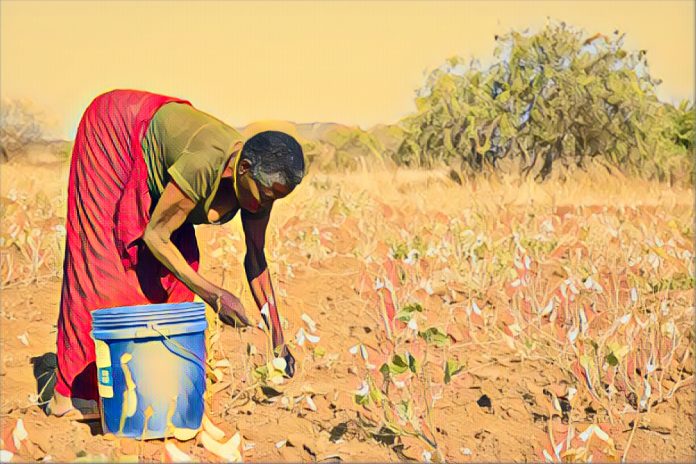KEY POINTS
- Nigeria calls for a global tax to aid African countries affected by climate change.
- Deputy Speaker Kalu highlighted Africa’s disproportionate climate impact despite low emissions.
- Economist Esther Duflo’s proposal for a climate tax to fund adaptation in vulnerable regions was endorsed.
The Nigerian parliament has demanded tax contributions from multinational corporations and billionaires worldwide in order to aid African nations suffering from the effects of climate change, especially those affected by the recent flooding in the states of Borno and Zamfara.
Renowned economist Esther Duflo had previously suggested a global tax to help areas that are more vulnerable to climate change adapt.
Benjamin Kalu, Deputy Speaker of the House of Representatives and head of Nigeria’s delegation, made the call on Tuesday on behalf of Nigeria during the ongoing extraordinary session of the Pan African Parliament’s committees in South Africa.
In response to a paper presented by Mr. Charles Nyambura, Director of Programs and Research at the Pan African Climate Justice Alliance, titled “The Impact of Climate Change and Africa’s Strategic Pursuits Going Into COP,” Kalu argued in favor of a global climate tax in order to support climate adaptation in the most vulnerable regions of the world, particularly Africa.
Africa’s disproportionate impact from climate change and energy gap
The Deputy Speaker expressed regret for the recent flooding in Borno, Zamfara State, and other areas and stated that the purpose of the climate tax is to lessen the effects of climate change throughout the continent.
“Africa is disproportionately impacted by climate change despite contributing just 3.8 percent to the global share of greenhouse gas emissions in contrast to 23 percent by China, 19 percent by the US, and 13 percent by the European Union,”
Kalu stated in a statement sent on Tuesday by the Chief Press Secretary to the Deputy Speaker, Levinus Nwabughiogu, “Africa’s progress towards sustainable development goals is impeded by climate change, which hampers both economic growth and human well-being.”
According to a report by Punch, The World Bank estimates that 600 million Africans do not have access to electricity at the moment, which impedes the continent’s ability to grow economically, industrialize, and provide basic services.
“Furthermore, in contrast to South Asia and Latin America, which have made greater strides toward closing their energy deficits, Africa faces an expanding energy gap.”
In order to help low-income nations prepare for and lessen the effects of climate disasters, Duflo’s proposal includes a tax on billionaires and multinational enterprises.
The impact of flooding and food insecurity in Africa
In August and September of 2024, massive rains in Borno State, Nigeria, impacted numerous local government areas, causing severe floods, highlighting the need for climate resilience. Numerous homes were destroyed, infrastructure, crops, and shelters were damaged, and numerous communities were left in ruins by these floods.
The Displacement Tracking Matrix of the International Organization for Migration revealed that floods impacted 320,791 people in 65,731 households across 19 local government areas in Borno State alone.
These individuals, who were all negatively impacted by the floods, comprise 157,274 internally displaced people and 108 returnees.
He also emphasized the terrible consequences of food insecurity, which are exacerbated by conflicts, economic instability, and climate change. In order to address the escalating food crisis, Kalu advocated for extensive agricultural reforms and investments in agribusiness, while acknowledging that Africa’s agricultural potential is still mainly unrealized.
Kalu emphasized once more how important education is to determining the future of the continent and how it fits into the African Union’s Agenda 2063 ambitions.
In addition, Kalu urged for unified education policies throughout the continent, saying, “We cannot speak of a prosperous Africa when our education systems are failing to prepare our youth for the challenges and opportunities of tomorrow.”
In terms of security, the Deputy Speaker emphasized the value of regional collaboration in the fight against violent extremism, organized crime, and terrorism as well as pooled intelligence tools like the African Union’s African Standby Force.
Additionally, Kalu denounced the illegitimate changes in authority, characterizing coups and other transitions as dangers to the democratic advancement of the continent. He went on, “We cannot allow a return to the dark days when the actions of a few undermine the will of the people.”



